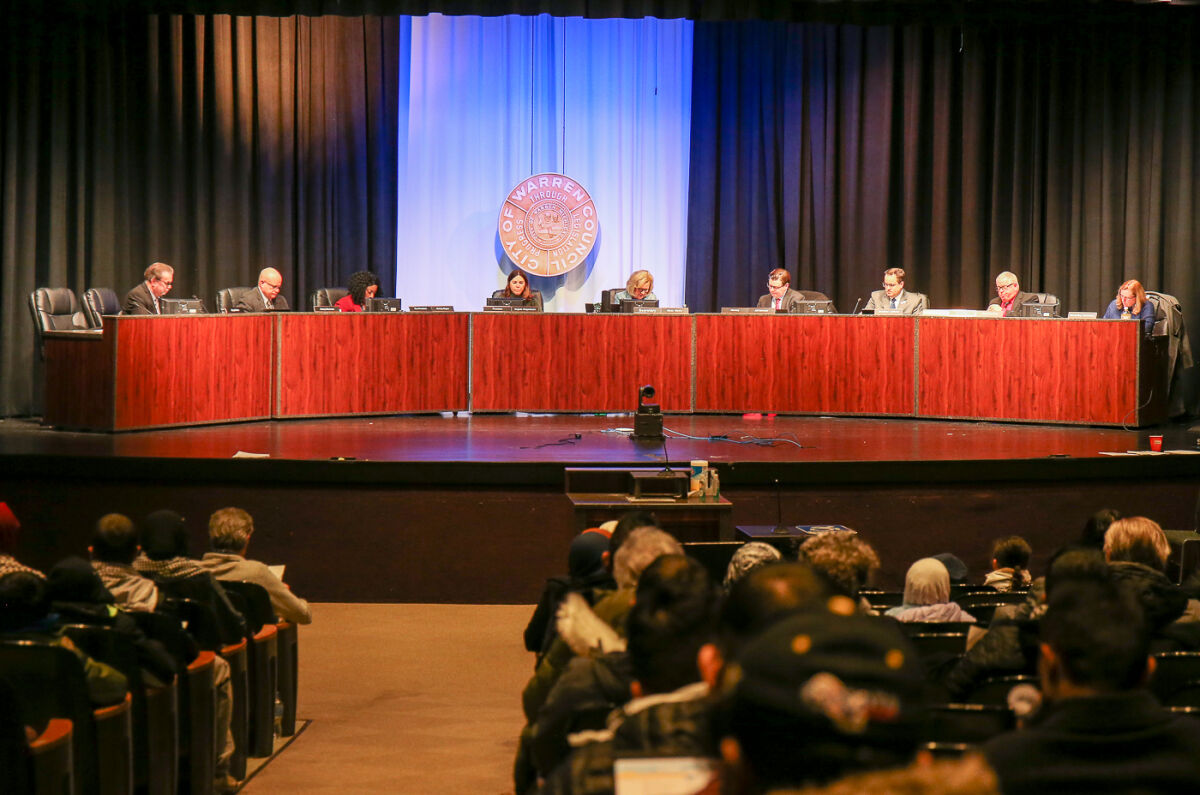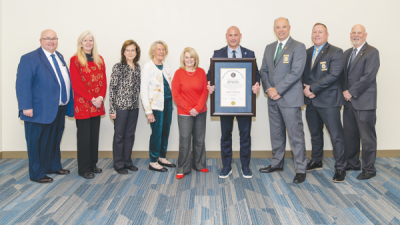WARREN — Officials say land banks are a tool that allows for proactive economic strategies to bring neglected properties back into productive use.
The Warren City Council filed a lawsuit in Macomb County Circuit Court against Warren Mayor Lori M. Stone late last year for failing to sign the council’s approved land bank resolution. The case was dismissed and closed a few days later.
The council had voted unanimously Nov. 26 to give the mayor 72 hours to sign the land bank documents. But the mayor did not sign.
The lawsuit was filed Dec. 9, approximately 100 days after the council first took action on it in August.
According to Council Secretary Mindy Moore, per the city charter, the mayor had 96 hours to veto council’s action on the land bank. Once that time expired, Moore said the mayor’s signature was just a matter of her “ministerial duty,” according to the charter.
“According to the city charter, the resolution requires the mayor’s signature whether she is in agreement with the land bank or not,” Moore said.
The passage of 100 days without a signature from the mayor compelled the City Council to take action, according to Warren City Councilman Jonathan Lafferty.
“This was inexcusable,” Lafferty said.
“Although it is terribly unfortunate that we had to threaten legal action to compel the mayor to do her job,” Lafferty continued. “While we avoided expensive and unnecessary litigation, Stone’s malfeasance and failure to act has cost the city a loss of over $1 million dollars in state and federal revenues that would have kickstarted redevelopment efforts.”
The mayor signed the necessary documentation for the land bank and in a Dec. 11 press release stated, “My reluctance to sign the Intergovernmental Agreement creating the city of Warren Land Bank Authority as drafted and adopted (by) Council (was) because of the way it was written. I have calculated the cost to be $200,000-$300,000 a year. Over the 5-year commitment of the contract, this would add up to roughly $1 million to $1.5 million taxpayer dollars that will come from other essential services in the city budget.”
Stone said she consulted with State Land Bank Authority Director Joseph Rivet, and also reached out to the land bank authorities of Benzie and Ingham counties for information about land banks.
In a Dec. 12 interview with the mayor, Stone said she wanted to know the fiscal impact it would have on Warren taxpayers before she signed off on it.
“Good decisions are great, but they are not free,” Stone said. “The responsibility of the government is weighing the benefits of good decisions against the expense of the taxpayers. Before I was willing to sign on for this, I was trying to understand this.”
The mayor emailed members of council what they described as a “lengthy list of questions” before the Nov. 26 council meeting.
“To me this is ridiculous. This is not how you operate a city,” Councilman Gary Boike said about the email.
“I probably could have reached out sooner, and said, ‘Hey, do you have this documentation?’ But since I submitted that request for documentation, over two weeks ago (from Dec. 12), I still haven’t received anything from council,” Stone said. “Council members say we did our research. Well, that’s great. That’s helpful, but it doesn’t help if you keep that information to yourself and you don’t communicate it to one executive.”
Council members said the time for the mayor to have had her questions answered and discuss any concerns with them was between March 2024, when the Warren Land Bank Authority item first appeared on the City Council’s agenda, to before it was voted on and approved by council at the Aug. 27 meeting.
According to Lafferty, the mayor could have come to the City Council during that five-month period and asked any questions she had or discussed any concerns, but she did not.
Neither the council members nor the mayor wanted to see the issue result in a lawsuit. However, according to the City Council’s attorney Jeffrey Schroder, they were left with limited options.
“We can go to Circuit Court and get an order. We will win the case. We’ve won these cases many times before,” Schroder said. “It just seems like a waste of resources.”
Stone said about the threat of litigation, “Warren has been conditioned to expect dysfunction of their government.”
The mayor has in the past been able to work together and discuss matters with council; however, that was not the case this time, she said.
“Warren falls back into the pattern of threats: Do this or else, instead of conversations,” the mayor said.
Among Stone’s questions that have remained unanswered is the fiscal impact of the land bank to Warren taxpayers.
“The beginning stages should be nominal, and the City Council has identified the opportunities for the land bank to operate within city property,” Lafferty said. “This is property and office space the city already owns and controls. This includes inside City Hall, the Community Center, (and the) Civic Center South are areas that the land bank can operate.
“Every authority that operates within the city pays an administrative service fee, for the utilities, office space, phones and any other utilities they might need to leverage,” Lafferty said. “And those services are paid out of the revenue streams from that authority. So the land bank would pay an administrative fee, to the city, to the general fund, to pay for itself.”
The revenue streams are the state and federal funds and grants generated by the land bank. In addition, there are taxable benefits of operating a land bank, according to Lafferty.
“The transformation that comes from this (land bank) will pay for itself tenfold,” Lafferty said.
Warren City Treasurer Lorie Barnwell addressed some of the mayor’s concerns at the Nov. 23 council meeting.
“There is concern from the administration, there is going to be administrative costs and legacy costs. That’s just not true. We can all come together and come up with a great strategy,” Barnwell said.
Barnwell expressed respect for the mayor and said she appreciates how she listens to residents.
“I think she also needs to spend time listening to the people who have done the research (on land banks), people like the Oakland County treasurer, like myself,” Barnwell said. “I have not been asked by anyone from the administration what I think of the land bank.”
Barnwell is currently in her third term as treasurer.
“I have spent the last nine years dreaming about how we can have a land bank and what that would mean to residents in the neighborhood,” Barnwell said. “They could have more of a voice and a front row seat to what happens (in their neighborhood).”
Asked if she had consulted with the city treasurer about land bank questions, Stone said, “She (Barnwell) hasn’t reached out to the administration.”
The lawsuit was filed at a cost of $175 and dismissed and closed Dec. 12, according to court records.
Call Staff Writer Gena Johnson at (586) 498-1069.
 Publication select ▼
Publication select ▼













